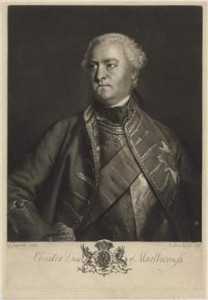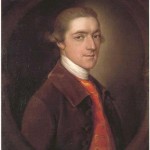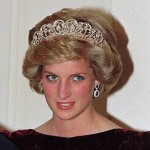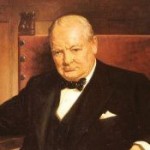duke
 The dukedom of Marlborough is one of the titles in the Peerage of England. The Peerage of England comprises all peerages created in the Kingdom of England before the Act of Union in 1707. In that year, the Peerages of England and Scotland were replaced by one Peerage of Great Britain. The peerage is a legal system of largely hereditary titles in the United Kingdom, which is constituted by the ranks of British nobility and is part of the British honors system. The dukedom of Marlborough was created by Queen Anne in 1702, for John Churchill, who was the 1st Duke of Marlborough.
The dukedom of Marlborough is one of the titles in the Peerage of England. The Peerage of England comprises all peerages created in the Kingdom of England before the Act of Union in 1707. In that year, the Peerages of England and Scotland were replaced by one Peerage of Great Britain. The peerage is a legal system of largely hereditary titles in the United Kingdom, which is constituted by the ranks of British nobility and is part of the British honors system. The dukedom of Marlborough was created by Queen Anne in 1702, for John Churchill, who was the 1st Duke of Marlborough.
I can’t say that I completely understand all there is to about the peerage of Great Britain, but in the peerage, a Duke is a higher rank than a Marquess, Earl, Viscount and Baron. Thus Prince William is the Duke of Cambridge, because as the prince, it would not be right for him to have a lower rank than other members of the peerage. Originally dukes were the rulers of the provinces of the Roman Empire. Now however, the title of duke has become in almost all cases a nominal rank, without possession of an actual principality. The province that a duke was titled over, is known as a duchy. As I said, in modern times dukes aren’t really over a duchy, with the exception of Lancaster and Cornwall, both of which do include land and ownership. Lancaster belongs to Queen Elizabeth II and Cornwall to Prince Charles. The title of duke cannot normally be handed down to female heirs, but the Dukedom of Marlborough is the exception to that rule. It is one of the few titles that allows females to inherit the title, and the only current dukedom to do so.
In the Spencer family, there have been a number of titles, but it wasn’t until Charles Spencer, 3rd Earl of Sunderland, widowed following the death of his first wife, Arabella, daughter of Henry Cavendish, 2nd Duke of  Newcastle, married Anne Churchill, that the Dukedom of Marlborough first came to the Spencers. With this dukedom, Charles Spencer was first introduced to politics, making this alliance between Sunderland and Marlborough a very important one for Charles and his descendants. From his marriage to Anne Churchill who would become the 2nd Duke of Marlborough, the Spencer family would retain the dukedom for all time. At the current time, the dukedom is at 12, with Charles James Spencer-Churchill, 12th Duke of Marlborough, born in 1955, as the current duke.
Newcastle, married Anne Churchill, that the Dukedom of Marlborough first came to the Spencers. With this dukedom, Charles Spencer was first introduced to politics, making this alliance between Sunderland and Marlborough a very important one for Charles and his descendants. From his marriage to Anne Churchill who would become the 2nd Duke of Marlborough, the Spencer family would retain the dukedom for all time. At the current time, the dukedom is at 12, with Charles James Spencer-Churchill, 12th Duke of Marlborough, born in 1955, as the current duke.
To date, I cannot say how many dukes and duchesses were or are Spencer descendants, for names change with marriages over the years. Nevertheless, the Spencers have played a great part in the peerage of Great Britain, and with Prince William and his descendants, beginning with Prince George, the Spencers will continue to have great influence in that nation for the rest of time.
 Most people know that Princess Diana married Prince Charles, and for a lot of people that is the extent of the Spencer ties to the British Aristocracy. That assumption couldn’t be further from the truth. The Spencer family is one of Britain’s preeminent aristocratic families. In the family line, there have been knights, baronets, and members of the royal family. Hereditary titles include dukedom of Marlborough, earldom of Sunderland, as well as Spencer and Churchill viscountcy. Of course, the two most well known members were Sir Winston Churchill and Princess Diana, with the current addition of Princes William and Henry, and now George.
Most people know that Princess Diana married Prince Charles, and for a lot of people that is the extent of the Spencer ties to the British Aristocracy. That assumption couldn’t be further from the truth. The Spencer family is one of Britain’s preeminent aristocratic families. In the family line, there have been knights, baronets, and members of the royal family. Hereditary titles include dukedom of Marlborough, earldom of Sunderland, as well as Spencer and Churchill viscountcy. Of course, the two most well known members were Sir Winston Churchill and Princess Diana, with the current addition of Princes William and Henry, and now George.
So the question remains, how did this family rise to wealth, or were they born into it? The answer is that the Spencer family rose to wealth from humble beginnings. A close relative of Henry Spencer who died in 1478, was John Spencer who in 1469 had become a feudal lord of Wormleighton in Warwickshire and a tenant of the now famous to most people, Altrop in Northamptonshire in 1486. His nephew, Sir John Spencer, who died in 1522, first made a living trading in livestock and other commodities. He was able to save enough money to purchase both the Wormleighton and Altrop lands, and the estate of Altrop with its moated house and several hundred acres of farmland. The family grazed sheep on the land. As time went on, he purchased more and more land. He then rebuilt the Altrop house in 1508 and it became the family home for the  next nineteen generations. By the 16th century the Spencer family had entered Parliament in the person of Sir Robert Spencer (1570 – 1627) who represented Brackley in Parliament. He was made a Knight of the Garter and created Baron Spencer of Wormleighton in 1601. During the reign of King James I, Sir Robert Spencer was reputed to be the richest man in England.
next nineteen generations. By the 16th century the Spencer family had entered Parliament in the person of Sir Robert Spencer (1570 – 1627) who represented Brackley in Parliament. He was made a Knight of the Garter and created Baron Spencer of Wormleighton in 1601. During the reign of King James I, Sir Robert Spencer was reputed to be the richest man in England.
There were those in the British aristocracy, such as the more established Howard and FitzAlan ancestors, who didn’t approve of the Spencer’s rise to wealth through sheep herding, and who tried to act more officially aristocratic, but they were shot down in a heated debate when Lord Spencer replied, “When my ancestors, as you say, were keeping sheep, your ancestors were plotting treason.” I’m sure this did not go over well, but apparently, they were not able to dispute that accusation, and so the subject was dropped. There have been countless other Spencers in the British Parliament, as well as the House of Commons. The Spencer family has been influential in much of the lawmaking in England, as well as in the area of British economics.
I guess I don’t quite understand why the other aristocratic families didn’t like the way that the Spencer family rose to wealth, but I think that in the area of wealth and politics, the old money and old political families often  don’t like having new upstarts invading their supposed territory. I don’t think it is much different in any country. The wealthy families tend to like their power and prestige, and really don’t want to share those things much. I seriously doubt that they ever gave any thought to where their own wealth came from. Later, after the upstart families are established, they simply have to accept it. It reminds me of the unsinkable Molly Brown on the Titanic. The established money didn’t like her marrying into her money. They didn’t feel like she belonged, but she didn’t care, and she was nevertheless a force to be reckoned with, so they had to treat her with respect. That is what has had to happen with the Spencer family, and now, their aristocracy is no longer questioned by any of the British aristocratic families.
don’t like having new upstarts invading their supposed territory. I don’t think it is much different in any country. The wealthy families tend to like their power and prestige, and really don’t want to share those things much. I seriously doubt that they ever gave any thought to where their own wealth came from. Later, after the upstart families are established, they simply have to accept it. It reminds me of the unsinkable Molly Brown on the Titanic. The established money didn’t like her marrying into her money. They didn’t feel like she belonged, but she didn’t care, and she was nevertheless a force to be reckoned with, so they had to treat her with respect. That is what has had to happen with the Spencer family, and now, their aristocracy is no longer questioned by any of the British aristocratic families.

